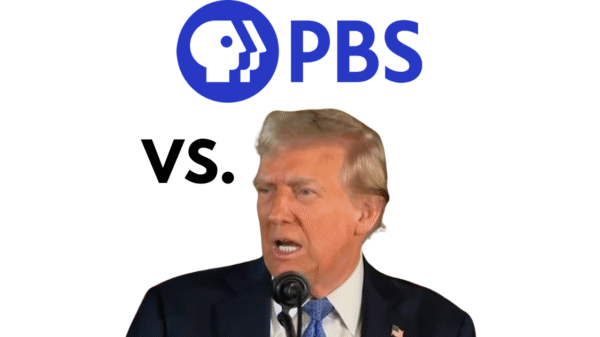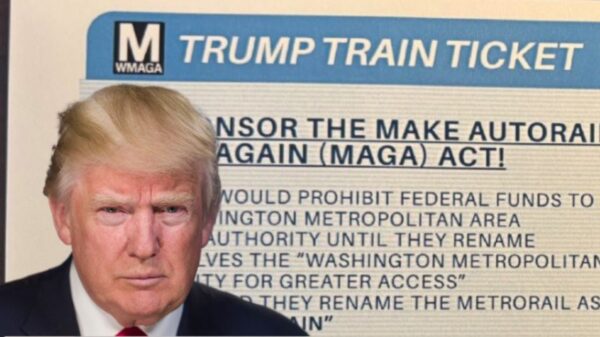This week, President Donald Trump signed U.S. Sen. Marco Rubio’s, R-Fla., “Hong Kong Human Rights and Democracy Act.”
Last week, Rubio was able to get the bill through the bill without opposition while only member of the U.S. House–Kentucky Republican U.S. Rep. Thomas Massie–voted against it.
Hong Kong has been in the headlines in recent months due to high-profile protests which started over a proposed extradition policy that could lead activists in Hong Kong to be deported to mainland China. Democracy activists in Hong Kong celebrated the bill being signed into law, including showcasing the American flag.
Rubio first unveiled the proposal, which “would renew the United States’ historical commitment to freedom and democracy in Hong Kong at a time when its autonomy is increasingly under assault,” in November 2016 and brought it back twice since then. U.S. Sen. Tom Cotton, R-Ark., and U.S. Sen. Ben Cardin, D-Md., have been among its chief supporters in the Senate.
Specifically, the proposal would continue following the United States-Hong Kong Policy Act of 1992 for insisting on democracy and human rights for that city. The legislation would also make the secretary of State issue annual reports on how democratic institutions are faring in Hong Kong and help “Umbrella Movement” activists opposing the communist Chinese regime apply for visas.
“When the British handed over Hong Kong to the Chinese twenty years ago this June, Beijing promised Hong Kong would enjoy a high degree of autonomy guaranteed under Basic Law,” Rubio said when he brought the bill back in 2017. “However, in recent years, Beijing has consistently undermined the ‘one country, two systems’ principle and infringed on the democratic freedoms the residents of Hong Kong are supposed to be guaranteed. China’s assault on democratic institutions and human rights is of central importance to the people of Hong Kong and to its status as a free market, economic powerhouse and hub for international trade and investment. The importance of this legislation was further impressed upon me late last year after meeting with pro-democracy activist Joshua Wong, who became the face of the Umbrella Movement for many in late 2014. Joshua is an impressive and thoughtful young man who, along with his fellow activists, represents the future of Hong Kong — a future that must not go the way of Beijing’s failed authoritarianism and one-party rule. The Hong Kong Human Rights and Democracy Act reaffirms America’s support of the people of Hong Kong as they seek to oppose Beijing’s efforts to erode democratic institutions.”
Rubio, the chairman of the Congressional-Executive Commission on China (CECC) and a member of the U.S. Senate Foreign Relations Committee, weighed in on the bill after Trump signed it into law.
“Earlier this month, in an overwhelming display of bipartisan unity, Congress passed our Hong Kong Human Rights and Democracy Act, and I applaud President Trump for signing this critical legislation into law,” Rubio said. “The U.S. now has new and meaningful tools to deter further influence and interference from Beijing into Hong Kong’s internal affairs. Following last weekend’s historic elections in Hong Kong that included record turnout, this new law could not be more timely in showing strong U.S. support for Hong Kongers’ long-cherished freedoms. I look forward to continuing to work with the administration to implement this law.”
U.S. Sen. Ben Cardin, D-Mary., also backed the law and helped Rubio clear it through the Senate.
“I am proud of this bipartisan law that sends a strong message to the demonstrators in Hong Kong, the government of Hong Kong, as well as the Communist Party of China: the United States is not only watching, but stands with demonstrators as they march for their autonomy, for their democracy, and for their human rights,” Cardin said. “We now have stronger legislative tools to back up our a moral obligation to support Hong Kong’s autonomy and hold China accountable for violations of human rights.”
Increasingly, Rubio is focused on Asian affairs. Besides leading the CECC, Rubio sits on the Senate Foreign Affairs Committee, the Senate Near East, South Asia, Central Asia, and Counterterrorism Subcommittee and on the East Asia, the Pacific, and International Cybersecurity Policy Subcommittee.
Reach Kevin Derby at kevin.derby@floridadaily.com.




















